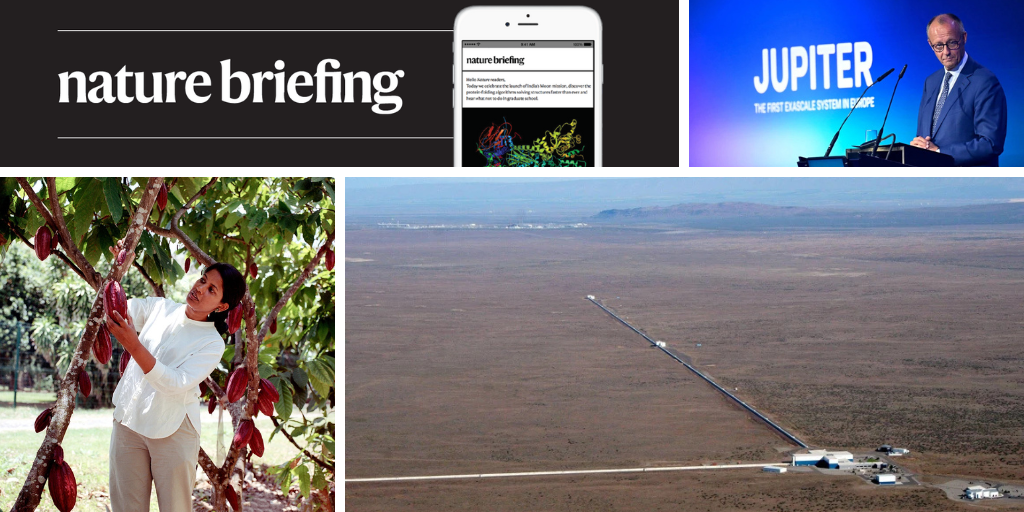
"In 2015, a continent-spanning pair of detectors - the twin facilities of the Laser Interferometer Gravitational-wave Observatory (LIGO), in the US states of Washington and Louisiana - first detected gravitational waves. These ripples in space-time originated more than a billion years ago in the cataclysmic merger of two distant black holes. Now, scientists are planning the next generation of observatories, such as the proposed Einstein Telescope in Europe, that could spot gravitational waves from anywhere across the observable Universe."
"A European supercomputer called JUPITER has reached a processing milestone - one quintillion operations a second - and done it completely on renewable power. JUPITER is the fourth-fastest computer in the world and ranks first in energy efficiency among supercomputers. Its role is to push the capabilities of research in areas such as weather modelling, astrophysics and biomedical research - and to keep Europe in the running in the race to innovate in artificial intelligence."
"The panel of top advisers who recommend how vaccines are used in the United States is about to meet: its second gathering since US health secretary Robert F. Kennedy Jr abruptly fired all of its previous 17 members and welcomed 7 new ones - several of whom share his anti-vaccine views. The agenda is unusually thin on details, but COVID-19 vaccines, measles jabs and hepatitis B vaccines for newborns are on the menu."
The twin LIGO detectors in Washington and Louisiana first detected gravitational waves in 2015 from a merger of two distant black holes more than a billion years ago. Scientists are planning next-generation observatories, including the proposed Einstein Telescope in Europe, that could detect gravitational waves across the observable Universe. A European supercomputer named JUPITER reached one quintillion operations per second on renewable power, ranking fourth-fastest globally and first in energy efficiency, to support weather modelling, astrophysics, biomedical research and AI. The US vaccine-advisory panel reconvened after membership changes and will consider COVID-19, measles and newborn hepatitis B vaccines. Researchers also found that octopuses favour different arms for different tasks.
Read at Nature
Unable to calculate read time
Collection
[
|
...
]